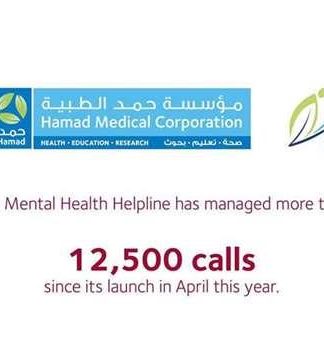Rare hepatitis virus afflicts children across EU, US and UK
Doctors are scratching their heads over a new, unknown form of hepatitis that is causing severe illness in some cases. Does the COVID pandemic have a role to play?
 Doctors are unsure what’s causing a new outbreak of an unknown hepatitis virus in young children, most under the age of five
Doctors are unsure what’s causing a new outbreak of an unknown hepatitis virus in young children, most under the age of five
Health officials in Europe, the US and the UK are looking into an outbreak of unexplained cases of hepatitis in young children. Some of them have been severe, requiring liver transplants.
It’s very rare to come across serious cases of hepatitis in children, said William Irving, a professor of virology at the University of Nottingham. He said in normal years, hepatitis cases in children in the UK have likely been in the single digits. Last week, 60 cases were reported across the country.
“I find this absolutely extraordinary,” said Irving. “I’ve not come across anything like this in my clinical practice. It’s worrying because we don’t know what’s going on.”
A mysterious liver inflammation in young children
All of the reported patients are under the age of 10, and many are under the age of five. The children aren’t testing positive for the typical hepatitis viruses — A, B, C, D or E — a situation Alastair Sutcliffe, a professor of general pediatrics at the University College of London, called “very unusual.”
The outbreak was first reported by UK health officials at the start of April. On April 19, the European Center for Disease Prevention and Control announced additional cases in Spain, Denmark, the Netherlands and Ireland. It also flagged cases in the US state of Alabama.
So far, a quick survey of children hepatological centers in Germany did not detect any cases similar to those noted by the UK health authorities, said Burkhard Rodeck, secretary general of the German Society for Pediatric and Adolescent Medicine e.V.
Hepatitis means inflammation of the liver and has many causes, Irving said. It can result from infections caused by viruses and toxins in alcohol or by problems like obesity. He said although the cause of this specific outbreak is still unclear, it’s being widely believed it could be related to the adenovirus.
Adenovirus a potential cause
Doctors found that some of the children diagnosed with the mysterious illness tested positive for a specific type of adenovirus infection — adenovirus 41. Irving said adenovirus 41 hasn’t been found in all the cases, and it hasn’t been looked for in all the cases, but it’s been observed in enough cases to potentially be more than coincidental.
Adenovirus 41 is a common infection in young children that normally causes a bit of diarrhea and vomiting, Irving said, adding that it isn’t known for being associated with hepatitis.
There could be something unusual about this specific adenovirus, Irving said. Or it could be interacting with something else that’s causing hepatitis. Or it could be a brand new infectious agent, or a toxin, or some kind of environmental factor, or a combination of all these possibilities, he said.
What about COVID?
Whether it’s related to COVID is also up in the air, Irving said. It’s possible some of these children had COVID, which impacted their immune system, making it harder to fight typical childhood viruses.
There are ample testing results available for the 13 cases found in Scotland. Of those 13, three tested positive for COVID infection, five tested negative and two had gotten the virus in the past three months. Only 11 of the 13 cases got tested for the adenovirus with five of them returning positive.
If COVID infection is not the root of the problem, the pandemic’s effect on children’s health could be a part of it, Irving said.
“You’ve got a cohort of children who have been largely shielded, the very young children. So they’ve not been exposed to the range of virus infections that they would normally have been exposed to,” said Irving.
“We have seen this winter much higher levels of a whole range of virus infections in children, including adenoviruses,” he said. “Maybe there’s something about the fact that they’ve sort of had two years of relative sterility where they’re not being exposed and all of a sudden, they’ve got a whole pile of infections, including adenoviruses that they’re not dealing with in the normal way.”
Rise in hepatitis cases no need to panic
Sutcliffe said one thing is clear: the hepatitis isn’t being caused by the COVID vaccine, because the children who have gotten the illness weren’t vaccinated.
He cautioned parents to stay calm.
“My understanding is quite a lot of [the children with hepatitis] have gotten better, which is the usual. If we narrow it down to a risk of liver failure, the risk is very small. And so I think let’s not exaggerate,” he said.
Irving said he expects to see many more cases reported in the coming weeks as health authorities become aware of and start tracking the outbreak. The fact the UK caught it first is likely due to the country’s rigorous reporting systems, he said.
“I don’t understand Alabama. I mean, why you would have nine cases in one state and no cases from the other 49 states. It doesn’t make any sense. I think that’s got to be a function of surveillance. I think if it’s occurring in Alabama, it is occurring elsewhere. It’s just they don’t know about it.”
Edited by: Ashutosh Pandey






























